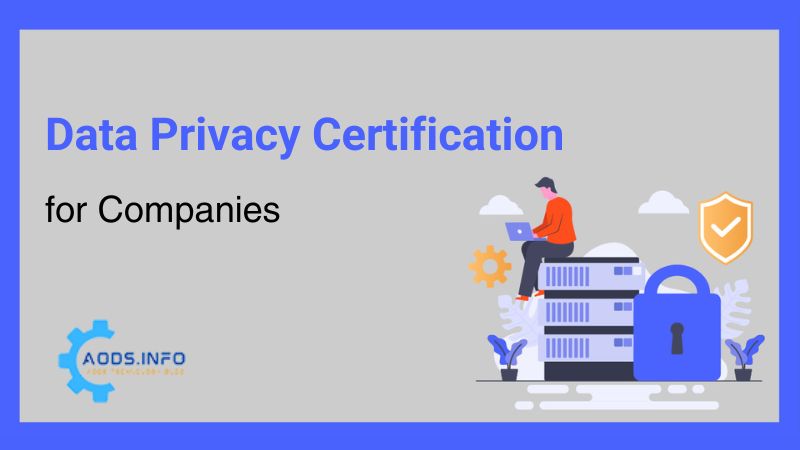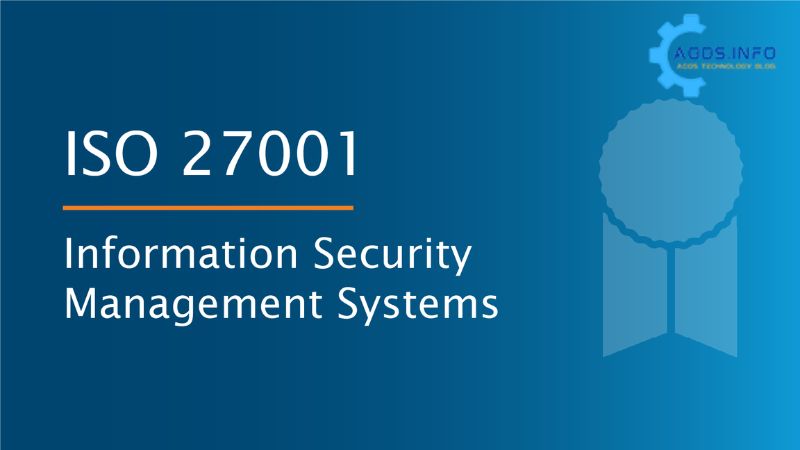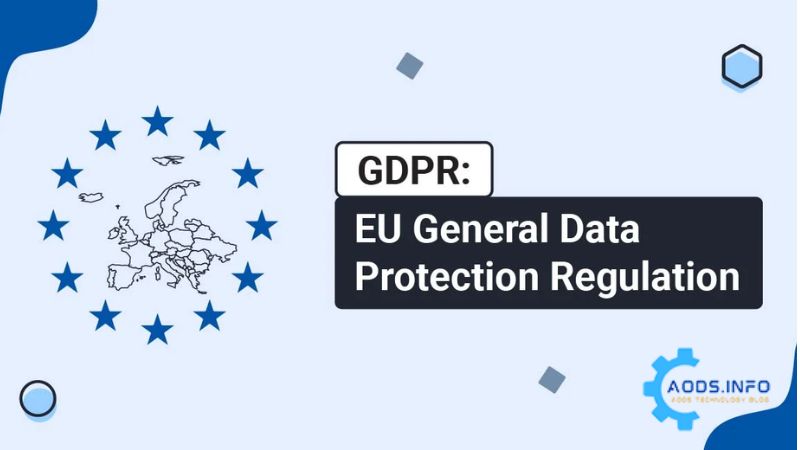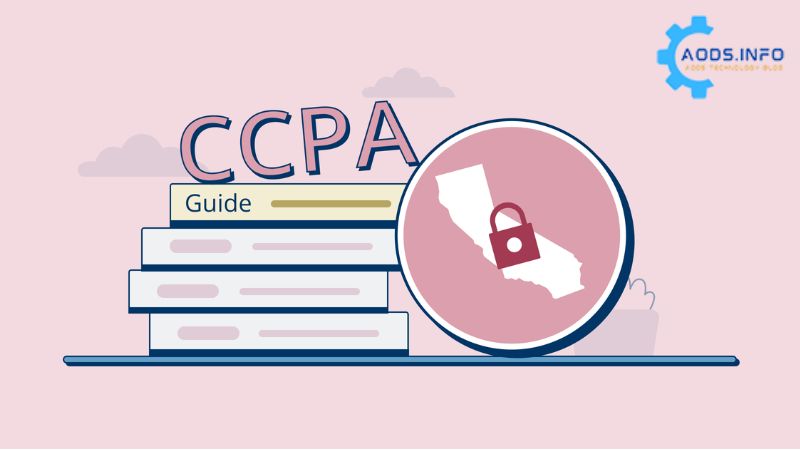In today’s digital age, where data breaches and privacy concerns are ever-present, ensuring the protection of sensitive information has become paramount for companies worldwide. As organizations collect, store, and process vast amounts of data, they face increasing scrutiny from regulators and consumers alike. To address these challenges, many companies are turning to data privacy certifications to demonstrate their commitment to safeguarding personal information. In this article, Aods.info will explore the landscape of data privacy certification for companies, highlighting key certifications and their significance in enhancing trust and compliance.
Contents
- 1 Data Privacy Certification for Companies
- 1.1 1. ISO 27001: A Global Standard for Information Security
- 1.2 2. GDPR Compliance: Upholding Data Protection in the European Union
- 1.3 3. Privacy Shield: Facilitating Transatlantic Data Transfers
- 1.4 4. SOC 2: Ensuring Trust Through Comprehensive Audits
- 1.5 5. CCPA Compliance: Safeguarding Consumer Privacy in California
- 1.6 6. HIPAA Compliance: Protecting Healthcare Data With Vigilance
- 1.7 7. Privacy by Design: Embedding Privacy Principles Into Product Development
- 2 Closing Thought
Data Privacy Certification for Companies
1. ISO 27001: A Global Standard for Information Security
Among the myriad of data privacy certifications available, ISO 27001 stands out as a globally recognized standard for information security management systems (ISMS). While not specifically focused on data privacy, ISO 27001 encompasses requirements for protecting personal data, making it a valuable certification for companies seeking to enhance their data protection practices. By achieving ISO 27001 certification, organizations can demonstrate their adherence to international best practices in managing information security risks, thereby instilling confidence among stakeholders.
2. GDPR Compliance: Upholding Data Protection in the European Union
For companies operating within the European Union (EU) or handling the personal data of EU residents, compliance with the General Data Protection Regulation (GDPR) is imperative. While there is no official certification for GDPR compliance, companies can undergo audits or assessments to ensure adherence to the regulation’s stringent requirements. Achieving GDPR compliance signifies a company’s commitment to respecting individual privacy rights and upholding the highest standards of data protection, thereby mitigating the risk of regulatory penalties and reputational damage.
3. Privacy Shield: Facilitating Transatlantic Data Transfers
In the realm of international data transfers, the EU-U.S. Privacy Shield was once a widely utilized framework for ensuring compliance with EU data protection requirements when transferring personal data from the EU to the United States. However, the framework was invalidated in 2020, leaving companies to seek alternative mechanisms for facilitating transatlantic data flows. Despite its demise, the Privacy Shield underscored the importance of robust data privacy frameworks in enabling seamless data transfers while maintaining adequate safeguards for personal information.
4. SOC 2: Ensuring Trust Through Comprehensive Audits
Developed by the American Institute of Certified Public Accountants (AICPA), SOC 2 (System and Organization Controls 2) is an auditing standard that assesses an organization’s controls related to security, availability, processing integrity, confidentiality, and privacy of data. While SOC 2 does not focus solely on data privacy, it includes criteria that are integral to safeguarding sensitive information. By undergoing SOC 2 audits, companies can provide assurance to customers and stakeholders regarding the effectiveness of their data protection measures, thereby fostering trust and confidence in their services.
5. CCPA Compliance: Safeguarding Consumer Privacy in California
In the state of California, the California Consumer Privacy Act (CCPA) sets forth stringent requirements for protecting the privacy rights of residents. While similar to GDPR, CCPA compliance entails unique obligations tailored to the Californian legal landscape. Although there is no official certification for CCPA compliance, companies can undergo assessments to ensure alignment with the regulation’s provisions. By prioritizing CCPA compliance, organizations can demonstrate their commitment to respecting consumer privacy and complying with California’s robust data protection standards.
6. HIPAA Compliance: Protecting Healthcare Data With Vigilance
For companies operating in the healthcare sector, compliance with the Health Insurance Portability and Accountability Act (HIPAA) is non-negotiable. HIPAA sets the standard for protecting sensitive patient data and imposes stringent requirements on covered entities and business associates. While specific to the healthcare industry, HIPAA compliance underscores the importance of safeguarding personal health information and maintaining confidentiality. By adhering to HIPAA regulations, companies can mitigate the risk of data breaches and ensure the integrity of healthcare data.
7. Privacy by Design: Embedding Privacy Principles Into Product Development
Privacy by Design (PbD) is an approach to system engineering that emphasizes the integration of privacy considerations throughout the entire product development lifecycle. While there is no official certification for PbD, organizations can adopt PbD principles and undergo assessments to validate their implementation. By embracing PbD, companies can proactively address privacy risks and embed privacy-enhancing features into their products and services, thereby fostering a culture of privacy and trust among users.
Closing Thought
In navigating the landscape of data privacy certification for companies, it’s crucial for organizations to consider their specific industry, regulatory requirements, and geographic locations. While certifications such as ISO 27001, GDPR compliance, and SOC 2 provide a solid foundation for demonstrating commitment to data privacy, companies must also remain vigilant in adapting to evolving regulatory landscapes and emerging threats.
Achieving data privacy certification for companies is not merely a checkbox exercise but a continuous journey toward enhancing data protection and privacy practices. By obtaining certification, organizations signal their dedication to maintaining the trust and confidence of customers, partners, and stakeholders in an increasingly data-driven world.
In conclusion, data privacy certification for companies plays a crucial role in today’s data-driven economy, enabling organizations to demonstrate their commitment to protecting personal information and complying with regulatory requirements. Whether pursuing ISO 27001, GDPR compliance, SOC 2 certification, or other relevant certifications, companies must prioritize data privacy as a core component of their business operations. By investing in robust data protection measures and obtaining certifications that attest to their compliance efforts, companies can enhance trust, mitigate risks, and differentiate themselves in an increasingly competitive marketplace.




